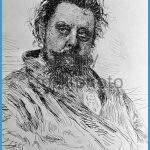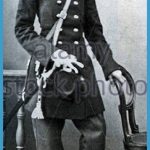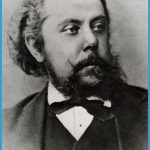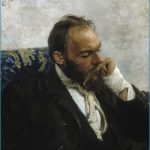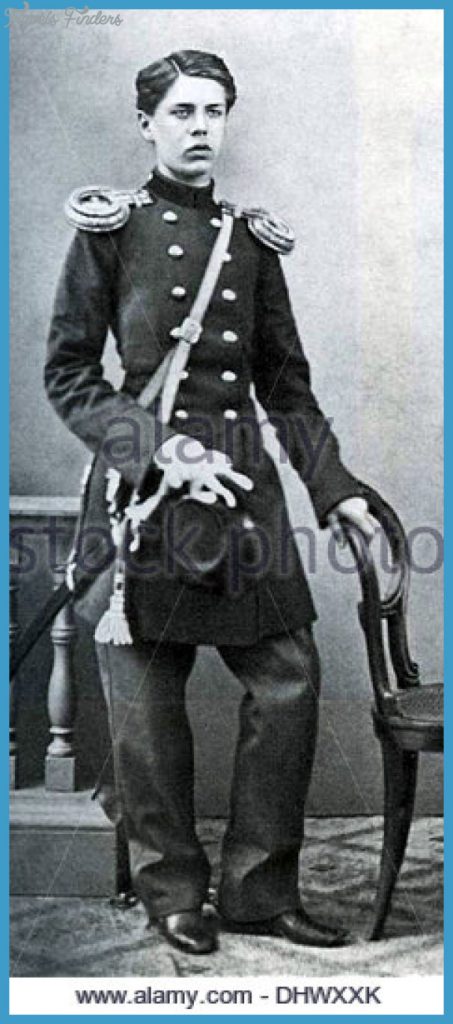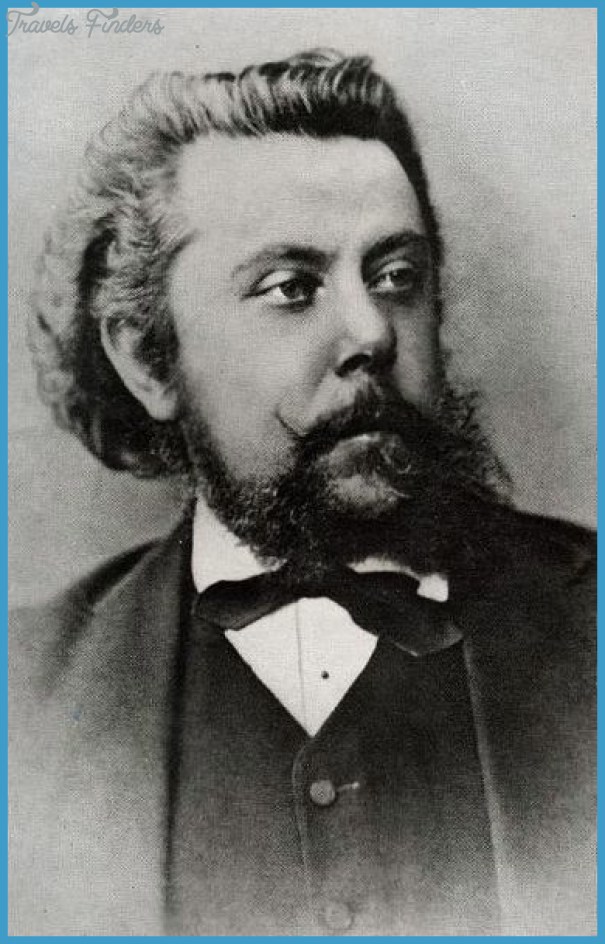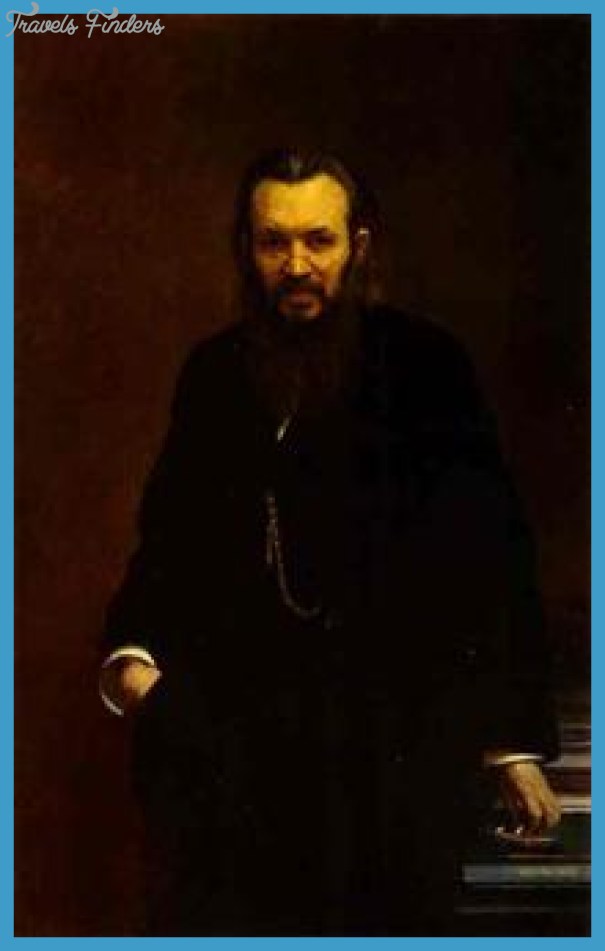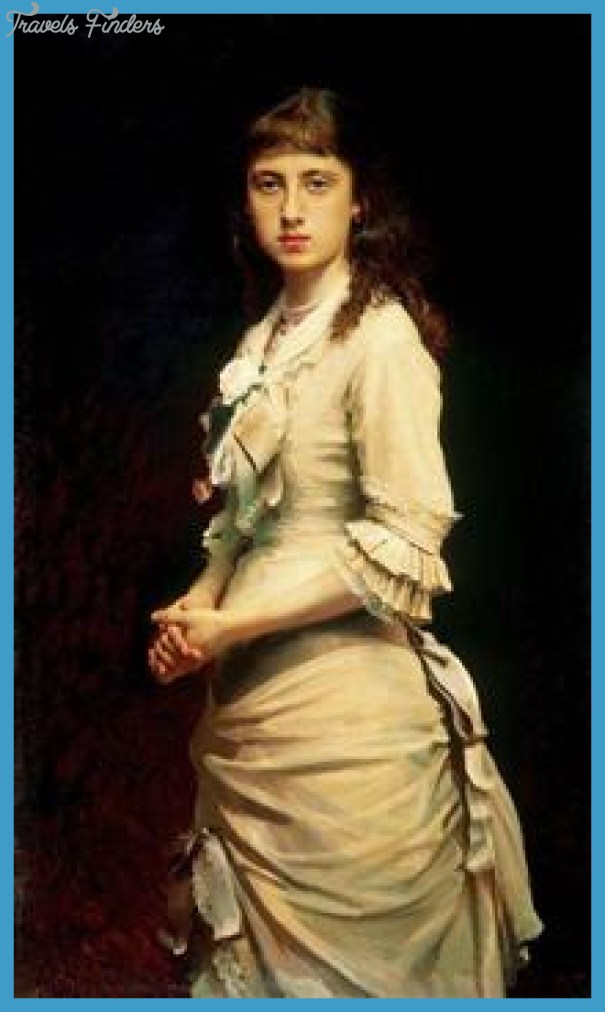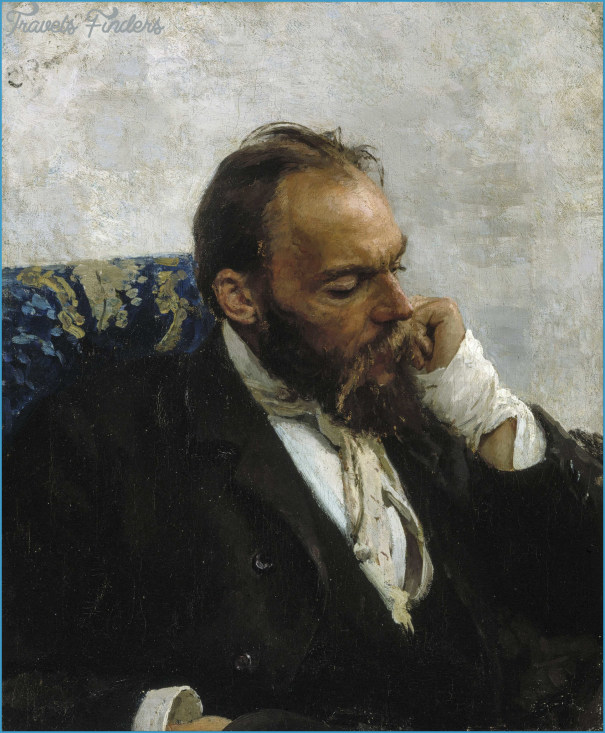MUSORGSKY MUSEUM
Modest Petrovich Musorgsky came from a wealthy land-owning family from western Russia. He was born in 1839 on an estate in the Kun’ya region of the Pskov administrative district, 420 km west of Moscow and 400 south and slightly east of St Petersburg; the nearest town of any size is Velikiye Luki. The estate lies some 12 km off the main road linking Moscow and Riga, within a national park or conservation area. It is close to Zhizhitsa station on the Moscow-Riga railway.
The actual house in which the composer was born, in the village of Karevo, no longer stands, although the spot is marked and there is a memorial statue nearby. But in the village of Naumovo, a couple of kilometres away, is The Musorgsky estate at Naumovo the splendid house that belonged to the family of his mother, Yuliya Ivanovna Chirikova; in 1970 this became a state museum dedicated to Musorgsky. The museum’ in fact comprises the Chirikov estate and part of the two villages. He spent much of his childhood in this house, which lies at the centre of the estate, in typical Russian empire style; it is situated in a large park, overlooking Lake Zhizhitsa. There are nine rooms on the ground floor, with displays keyed to particular periods of Musorgsky’s life, with furniture – some of it from Musorgsky’s own house or his mother’s, including bookshelves, chairs and the like – and other exhibits, including the autograph of a little polka for piano that he wrote in his teens (it was published in 1852) and a piano score of Boris Godunov. There are also engravings and photographs, some of them originals of the composer.
MUSORGSKY MUSEUM Photo Gallery
Around the main house are outbuildings, preserved as adjuncts to the museum: they include the servants’ quarters, a greenhouse, a dairy, a smithy, a cold store and a barn. Between Naumovo and Karevo lies the graveyard of the church of St Odigitriya in which Musorgsky’s parents were married and the composer was baptized. Musorgsky left the estate when he was ten to go to St Petersburg, where he attended school and later an army college; after brief military service he dedicated himself to music until the emancipation of the serfs in 1861, which much affected his family’s wealth and compelled him to find paid employment. He worked for a time as a civil servant until alcoholism finally overtook him and he came to rely on occasional support from friends and patrons. He died in 1881.
He was in St Petersburg during those years. From 1872 until 1875 he lived in a furnished apartment on the third floor of a large block, close to the river Neva (now Shpalernaya ulitsa 6, apt.15); this is the only one he himself ever rented. There in 1873-4 he put the finishing touches to the revised version of Boris Godunov for its production, early in 1874, at the Mariinsky Theatre, and went on to compose the early stages of Khovanshchina and to plan Sorochintsi Fair. Some of his finest songs, among them the last of the Nursery songs and the entire Sunless cycle, also belong to his years there. At first he lived alone, but in 1874 his friend and distant relative the poet Arseniy Golenishchev-Kutuzov joined him, though he moved out on his marriage the next year. Nikolay Rimsky-Korsakov (with whom Musorgsky had earlier shared accommodation) and his wife had an apartment just across the landing for a year. Cesar Cui, a member of their circle, had until recently lived on the second floor.
Parts of the block are now owned by the cellist Mstislav Rostropovich, who plans to make Musorgsky’s apartment into a memorial to the composer. He began by inviting Tat’yana Rimsky-Korsakova, the composer’s granddaughter, to research its original contents from family records and inventories. The intention is that it should be furnished and decorated in the style of Musorgsky’s time; there are already several portraits and prints relevant to the composer and his circle and a grand piano of the kind he originally had. In due course its three main rooms will be opened to the public. In the street below, outside the entrance to the block, a bust of
Musorgsky was erected in 1975 to commemorate his residence there.
Many years later the same block was the home of Dmitri Shostakovich, who had an apartment on the fifth floor for some 20 years, from his childhood until his marriage. Rostropovich has also instituted work to create a museum in that apartment; there are plans to open it in the composer’s centenary year, 2006, the same time as his widow hopes to open his Moscow flat (where there is already a Shostakovich archive next door) as a museum.

